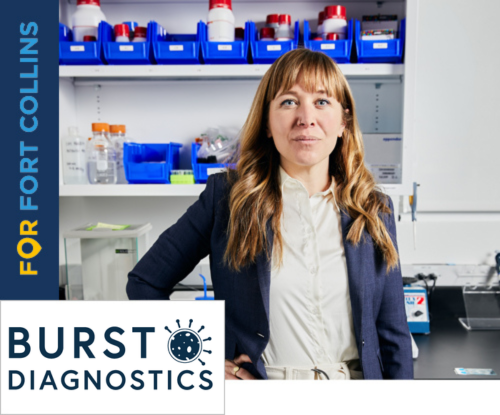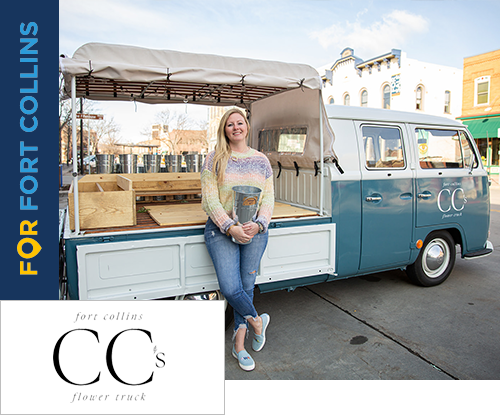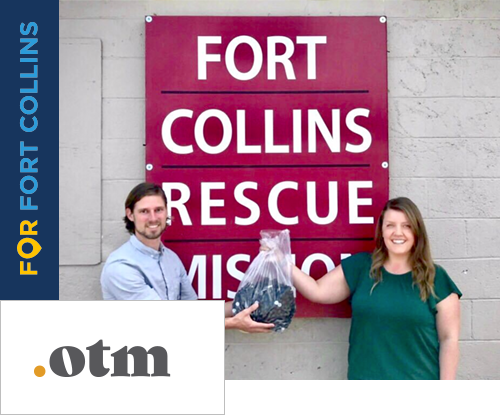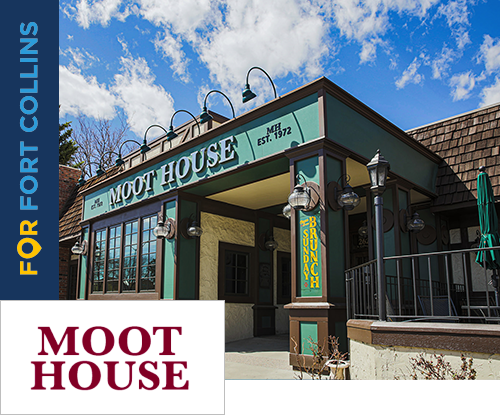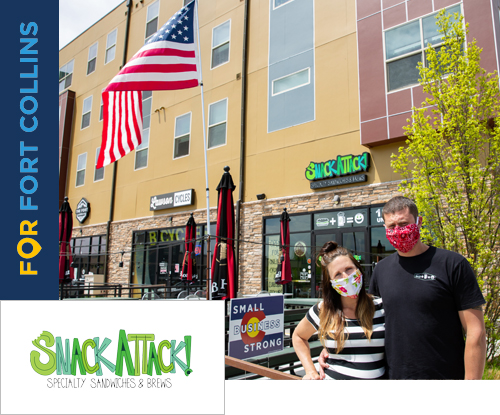Be sure to follow their work on their website and Instagram!
Join us in May for Economic Development Week, a national event to highlight the importance of economic development and its role in building strong, vibrant communities. During Economic Development Week, cities and organizations across the US showcase their success in attracting and retaining businesses, creating jobs, and promoting economic growth.
Meet Dr. Rose Nash, the expert in product creation and design at Burst Dx, a BioScience startup revolutionizing at-home diagnostic testing. Dr. Nash shares her journey as an entrepreneur, from being tired and broken from her previous COVID-19-centric job to becoming a part of Burst Dx’s shared vision of making the world a better place with the tests they’re building. She also discusses her experience as a woman in tech and her advice to aspiring bioscience students. Join us in celebrating economic development week and the startup companies that are making a difference.

1. What made you decide to be an entrepreneur vs work for someone else? Who or what inspired you to create Burst Dx?
Burst Diagnostics was founded by three extraordinary professors and their research groups at Colorado State University. Early in the pandemic, they were funded by the NIH (National Institutes for Health) to build a new technology platform to empower better future COVID-19 tests. What they built turned out to be a revolutionary new paradigm in diagnostic testing that had the promise to extend far beyond COVID-19 and the current pandemic. This possibility was the fuel that drove the decision to spin the technology out of CSU and into Burst Diagnostics. While an academic scientist at heart like the rest of the founders, I brought 10 years of commercial biotechnology experience and was hired to lead the CSU-developed technology from concept to market.
I was at an interesting time in my career when I came to Burst. I had just led a COVID-19-centric virus monitoring company from concept to profitability. In all honesty, I had COVID fatigue. I had worked through the shutdowns and supported growing a company that had to shift with the shifting pandemic landscape. I was tired, broken, and over standard business practices. I left the company ready for a break to focus on family and my equestrian hobby before going into business for myself. Inspired by the notion of ‘being the change you want to see in the world’, I wanted the opportunity to build the company that I had always wanted to see in the world.
Then I met Chuck Henry.
I was reaching out to him to discuss working together on a non-profit biotechnology venture I had been dreaming up. The idea was based on a Tom shoe-style model. In other words, make diagnostics for developed nations at a slight upcharge, such that we could give away diagnostics to countries with less access to care. That phone call was supposed to be half an hour long. We had such a shared vision for better diagnostics on the global stage, that it was easily 2 hours before we finally ended the meeting. With what I know now about how busy Chuck is, I’m sure he was actively canceling meetings during the call to keep the conversation going. The extra time was worth it. I joined Burst as their first employee shortly thereafter.
This shared vision for making the world a better place with the tests we are building was the first layer in the company’s foundation. We are continuing to build on that, and I believe strongly that the positive, exciting and productive culture at Burst Diagnostics is a direct result of team’s compatibility and shared vision.
2. What is a barrier you have struggled with and how have you overcome it?
Being a woman in tech is hard. It is not uncommon for me to be the only woman in a meeting, at a business dinner, or on a conference call. When I have had big ideas, I’ve been called ‘unbalanced’. When I’ve been open to new business deals, I’ve been called ‘naive’. When I’m too focused on the business, people forget I’m a PhD microbiologist with a long publication record. When I’m focused on the science, people forget about my success in negotiating large business deals and partnerships. I would say my largest barrier has been being constantly underestimated.
How have I overcome it? I’ve taken a two-prong approach. First, focusing on the challenges of today, I surround myself with phenomenal humans like the CSU co-founders of BurstDx – Drs. Charles Henry, David Dandy, and Brian Geiss. They are allies and strong supporters of women in science. Secondly, I focus on the future of STEM. Whenever I need hope, I look to the next generation. They are wider eyed, bushier in tail, and full of hope. I go out of my way to pitch ‘the burst way’ to as many young people as possible. I share that we’re building a company based on inclusivity, good tech, and doing good in the world. I then provide a lot of pro bono career planning and advice to this generation, both male and female.
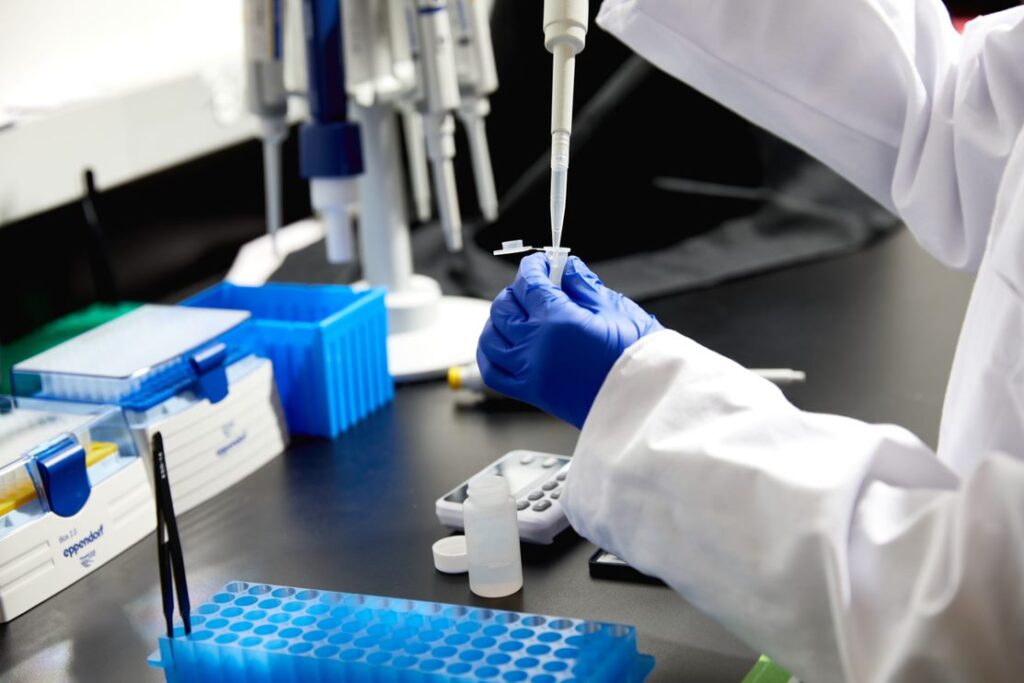
3. What would you say to aspiring startups in Fort Collins?
Look up from your tech for long enough to consider the culture of the company you’re building. So many startups focus myopically on the specs and performance metrics of the ‘thing’ they are building. This is of course important but you’re not just building a ‘thing’. You’re building a company. Companies are their people, and the company culture is how those people work together. From a business perspective alone – it’s easy to make a good case based on productivity and retention for investing in your company culture. From a human perspective, it’s even easier.
We all know it’s critical for a company to deeply explore how the product or technology they are developing is going to impact the world. I urge the same leaders to ask themselves how their company culture, hiring practices, and management style are going to impact the next generation of employees and employers and the way they start and lead the companies they will ultimately run one day.
Let’s make the workforce a better place than we found it.
4. What advice would you give to aspiring bioscience students looking for opportunities?
1) Get a pipette in your hand! Do anything you can to participate in research during your undergraduate studies. Having participated in undergraduate research makes you competitive for graduate programs as well as job opportunities.
2) Don’t keep going to school to avoid deciding on a career path. I was guilty of this. I had a PhD and was in my second postdoctoral fellowship before I took the time to sit down and realize that I wanted a career outside of academia. Because I’m the lifelong-learner type, staying in school always seemed like a good enough answer. However, taking time to be strategic with the education you may or may not need will save you a lot of time and money. If the answer is that you *do* need more education, you go through school with an end goal in mind which can help you avoid some of the graduate student blues, aka the what-am-I-still-doing-in-school-while-all-my-friends-have-good-paying-jobs blues.
3) Networking is so important! It might be scary to ask an established biotech professional or a renowned research scientist to talk with you about your career ambitions, but people really LOVE helping people. Better yet, people love connecting people with one another. Reach out to people regularly and ask them for career advice. It’s likely they will talk with you or connect you with someone even more pertinent. LinkedIn is a great modern-day tool for growing your network and staying up to date on what’s going on in different industries. Start there.
4) You are valuable. Your time is valuable. Your skill set is valuable.
Being able to comprehend complex and intricate bioscience concepts and processes requires critical thinking, abstract thinking, and discipline. Make sure to sell these attributes the next time you’re negotiating your value. The key to negotiating what you’re worth is data. Make sure you’ve done the research and can speak to the exact value that you bring.
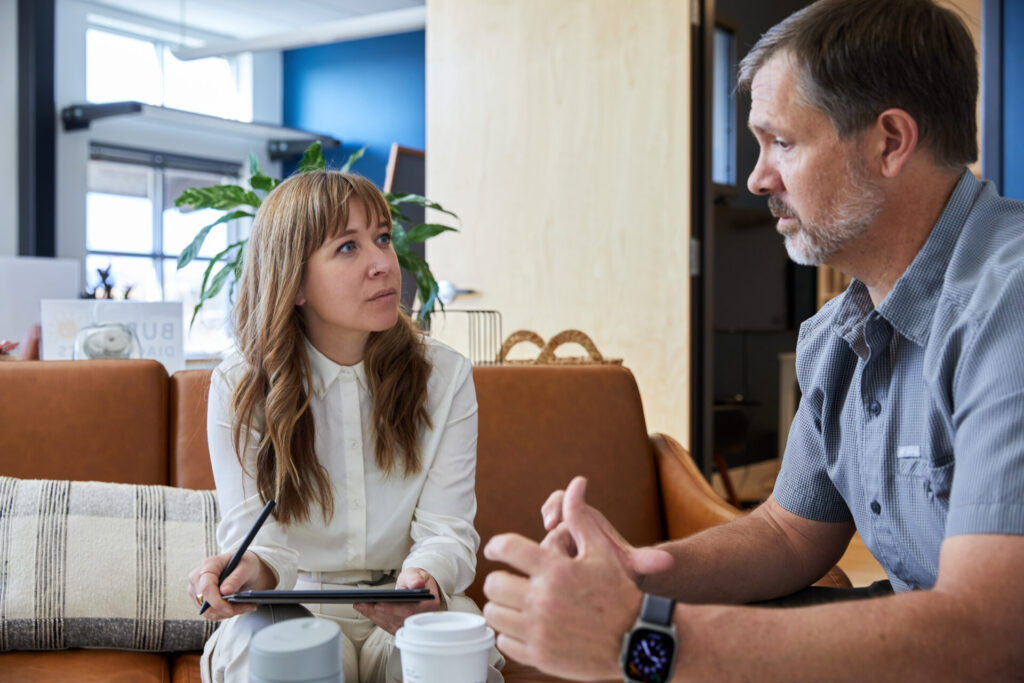
5. What keeps you in Fort Collins?
My family.
I moved to Colorado with my boyfriend, now husband, 10 years ago. We had met in Madison, WI and decided it would be fun to live in Colorado for a couple of years while I did a postdoctoral fellowship at the University of Colorado Boulder. At the time, we were avid triathletes and Boulder seemed like a fun place to work and play. We ended up, like a lot of young families, spread out across the front range with me working in Boulder, him working in Denver, our daughter in day-care in Arvada and us living in Westminster. Spread out like this – it was impossible for us to feel connected to a community. I was ready to leave Colorado. My mountaineer of a husband… not so much. We happened to take a day trip into Fort Collins 5 years ago when a heat wave forced us to abandon a hiking trip and find air conditioning. We ate at Austin’s downtown and grabbed coffee at Little Bird Café. I had an offer submitted on a house in Old Town a month later. Fort Collins gave us the opportunity to work and live in the same community. My husband is now the Senior Accountant for the city of Fort Collins. My daughter goes to Teaching Tree and we all love walking around Old Town and along the Poudre. With virtually no commute, we have more time to focus on our family, enjoy our hobbies, and participate as active members of the community.
6. What is your favorite Fort Collins business?
My favorite Fort Collins business is most definitely my riding coach, Anna Cummings’ equestrian team, which is run out of her family’s facility, Windolme Farm, in east Fort Collins. I got into the sport of three-day eventing as I was growing up further east where the sport is more common. It can be hard to find coaches in the sport this far west. It can be even harder to find coaches that would take on a working biotech executive, that’s also a mom and wants to make time for such a time-intensive sport. Anna and her mom have created a positive, learning environment for everyone, from avid enthusiasts who want to ride several horses a day to support a professional career in the sport all the way to hobbyists like me. I’m not sure I’d be able to keep up with the demands of a start-up without the community of women-supporting-women- doing-hard-things that I’ve found there.
